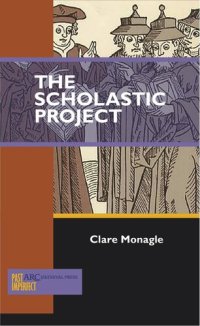
This is a somewhat polemical, and very passionate, plea for more work that tells us not only about the house that scholasticism built, but those who were excluded from it. Clare Monagle argues that we need to think of scholasticism as a coherent project if we are to come to terms with the constitutive work performed by this theology in the history of Western thought. Much changed between the Middle Ages and the time of enlightenment. What did not change, however, was that the reasonable white man was the thinking subject who was allowed access to the life of the mind, and defined what it was to be reasonable. This book is the story of how scholastic theology defined this universal subject, and a catalogue of the exclusions which ensued. These exclusions still obtain today. The categories of woman, Jew and heretic were core others against which ideal Christian subjectivity was implicitly defined. Theologians used these categories as sites of investigation, how did they tell us about God’s presence in the world? What epistemological and ontological purpose did these ‘others’ serve? The Scholastic Project offers an account of this intellectual work done by categories of difference in medieval theology. In so doing, it shows just how constitutive the woman, the heretic and the Jew were for the production of orthodoxy in the Middle Ages.